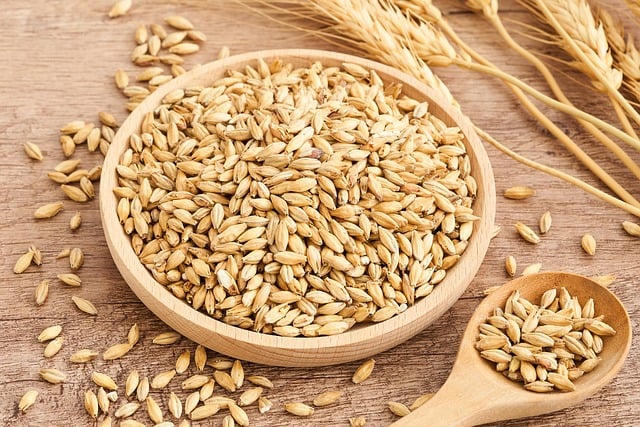“Gut health and belly fat“ are closely linked, as recent research suggests. Experts emphasize that maintaining a healthy gut microbiome can significantly impact overall health, including reducing visceral fat levels. The gut microbiome influences factors like heart disease, diabetes risk, and even enhances sports performance. What you eat directly affects the balance of gut microorganisms, which in turn plays a role in belly fat reduction.
Table of Contents
The Research on Gut Health and Belly Fat

According to a recent study published in the journal Nature Medicine, your unique diet effects the presence or absence of bacteria in your gut even more than hereditary variables do. Sarah Berry, PhD, of King’s College London, found gut microbes linked to food, habits, and health.. “These microbes can be divided into a group of ‘good’ microbes, which are linked to dietary patterns, healthful foods, and indicators of good health, such as reduced blood pressure, blood lipids, inflammation, and body fat.”
Particularly, Prevotella copri and Blastocystis were found to be linked to improved blood sugar regulation and decreased levels of harmful visceral belly fat, which is linked to the “apple” body shape and a higher risk of diabetes and heart disease.
What Are the Benefits of Good Gut Health for Reducing Belly Fat?

Having good gut health offers several benefits:
- Improved Digestion: A healthy gut microbiome helps break down food and absorb nutrients more efficiently, reducing digestive issues like bloating, gas, and constipation.
- Boosted Immunity: The gut plays a crucial role in immune function, with a healthy microbiome supporting a strong immune system, helping to defend against infections and diseases.
- Reduced Inflammation: A balanced gut microbiome can help regulate inflammation in the body, lowering the risk of chronic inflammation-related conditions like heart disease, diabetes, and autoimmune disorders.
- Better Mental Health: The gut-brain axis connects the gut and the brain, with gut health influencing mental well-being. A healthy gut microbiome is associated with a lower risk of depression, anxiety, and other mental health disorders.
- Weight Management: Some studies suggest that a diverse gut microbiome may help regulate metabolism and reduce the risk of obesity, as well as supporting weight loss efforts.
- Improved Mood and Cognitive Function: A healthy gut microbiome may contribute to better mood regulation and cognitive function, enhancing overall mental clarity and well-being.
- Balanced Hormones: Gut health can influence hormone balance, contributing to overall hormonal health and stability.
- Enhanced Skin Health: Some evidence suggests that a healthy gut microbiome may improve skin conditions like acne, eczema, and psoriasis by reducing inflammation and supporting the skin’s barrier function.
Overall, maintaining good gut health is essential for overall well-being, supporting various bodily functions and promoting optimal health from the inside out.
What Happens to Belly Fat if We Don’t Maintain Good Gut Health?

If gut health is compromised, several negative consequences can arise:
- Digestive Issues: Poor gut health can lead to digestive problems such as bloating, gas, constipation, diarrhea, and irritable bowel syndrome (IBS).
- Weakened Immunity: A compromised gut microbiome can weaken the immune system, making individuals more susceptible to infections and illnesses.
- Increased Inflammation: Imbalances in the gut microbiota can lead to chronic inflammation, which is associated with various diseases such as inflammatory bowel disease (IBD), autoimmune disorders, and metabolic syndrome.
- Nutrient Malabsorption: An unhealthy gut may have difficulty absorbing essential nutrients from food, leading to nutritional deficiencies and related health issues.
- Mental Health Issues: The gut-brain axis connects the gut and the brain, so poor gut health can contribute to mental health problems such as depression, anxiety, and cognitive decline.
- Weight Gain and Obesity: Imbalances in the gut microbiome have been linked to weight gain and obesity, as well as difficulties in losing weight.
- Skin Problems: Poor gut health can manifest in skin conditions such as acne, eczema, and psoriasis, as the gut-skin axis influences skin health.
- Increased Risk of Chronic Diseases: Dysbiosis, or imbalance in the gut microbiota, has been associated with an increased risk of chronic diseases such as cardiovascular disease, type 2 diabetes, and certain cancers.
Overall, maintaining good gut health is crucial for overall well-being and is linked to various aspects of physical and mental health. Prioritizing a healthy diet, managing stress, getting enough sleep, and avoiding factors that disrupt gut health (such as excessive alcohol consumption and certain medications) are important steps in supporting gut health and preventing these negative consequences.
Which Foods Can Improve Gut Health and Help Reduce Belly Fat?

According to Berry, the study also clearly distinguishes between “good” and “bad” bugs depending on the caliber of the food. For instance, eating a diet heavy in plant-based, high-fiber meals and other nutrient-rich foods like yogurt and seafood has been associated with good gut microorganisms. Heavy consumption of processed foods links to less beneficial gut microorganisms.
Berry says, “Our research revealed that not all plant foods are linked to beneficial microbes.” Extensively processed plant meals actually link to harmful bacteria. It’s the same with animal-based foods. While processed red meat, for instance, is linked to unfavorable microbiomes, less processed proteins, such fatty fish, are linked to positive microbiomes.
A lot of complete foods, such as fruits, vegetables, nuts, legumes, and whole grains, have a high natural fiber content. Fibre is an important ingredient that supports healthy gut flora. Processed meals lack fiber, reducing gut microbiota diversity. High-fiber meals are also associated with the presence of P. copri in the digestive tract, according to other research.
Additional foods can also improve intestinal health. Polyphenols found in fruits, tea, chocolate, and red wine contribute to a balanced microbiota, Berry notes. Probiotics from fermented foods like kefir and kimchi help maintain healthy gut flora.
Gut Health and Belly Fat: The Bottom Line

According to the most recent studies, there is a lot of promise for altering our microbiota through nutrition in order to improve our health and assist reduce visceral body fat. Swap processed foods for real ones to promote a healthy microbiome in your diet. “Try to eat a range of unprocessed plant-based foods every week,” advises Berry. “A balanced diet linking fruits, vegetables, nuts, seeds, fiber, and fermented foods promotes good health and a healthy microbiome.”
